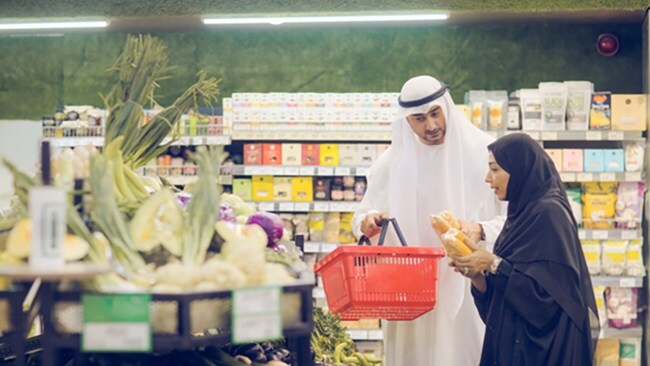The world’s love affair with chocolate has made cocoa one of the most sought-after agricultural commodities, and Africa stands at the very center of this booming global trade. As the source of more than 70% of the world’s cocoa, African countries such as Ivory Coast, Ghana, Nigeria, and Cameroon are vital to the world’s chocolate supply. Understanding the dynamics of African cocoa trade is essential for everyone involved in the global food industry, from manufacturers and logistics providers to policymakers and consumers.
The Global Demand for African Cocoa
The demand for African cocoa continues to rise, driven by both established and emerging markets. Major chocolate manufacturers and food companies rely heavily on African cocoa beans to produce a wide array of products, from chocolate bars and confectionery to cosmetics and pharmaceuticals. The unique flavor profiles of African cocoa—particularly the deep, robust taste from Ivory Coast and Ghana—make it the preferred choice for both mass-market and premium chocolate brands worldwide.
Emerging markets in Asia and the Middle East, alongside traditional markets in Europe and North America, are fueling an ever-growing appetite for chocolate. This surge in consumption is increasing the pressure on African cocoa producers to consistent supply high-quality beans year-round.
Factors Influencing the Demand for African Cocoa
Several key factors contribute to the strong global demand for African cocoa:
- Flavor and Quality: African cocoa beans are renowned for their rich, bold flavors, making them ideal for a variety of chocolate products.
- Scale of Production: West Africa’s favorable climate and established farming infrastructure allow for large-scale, reliable production.
- Ethical sourcing Initiatives: These have led African producers to adopt fair trade and farming practices, aligning with growing consumer interest in transparent and responsible supply chains. These practices aim to enhance the appeal of their cocoa to international buyers by adhering to specific standards.
- Consistency and Reliability: Strict quality control and grading systems, especially in countries like Ghana, ensure a steady supply of high-grade cocoa beans.
Current Market Trends Shaping the African Cocoa Industry
The African cocoa trade is currently navigating several significant trends:
- Rising Prices and Supply Constraints: Extreme weather, disease outbreaks (such as Black Pod and Swollen Shoot Virus), and aging cocoa trees have contributed to reduced African production.
- Ethical sourcing and Traceability: Regulatory changes, including the EU’s deforestation-free regulations, are increasing the demand for cocoa that can be traced back to its origin and meets specific ethical and environmental standards. Producers are implementing systems designed to comply with these regulations, such as enhanced supply chain monitoring and certification processes.
- Local Value Addition: There is a growing movement toward processing cocoa locally, with countries aiming to produce cocoa butter, paste, and even finished chocolate domestically. Ivory Coast is the world leader in cocoa production accounting for about 40% of the market. This not only increases export value but also creates jobs and stimulates local economies.
- Expansion of Emerging Markets: Rapid growth in chocolate consumption in countries like China and India is reshaping global demand patterns and encouraging further investment in African cocoa production.
Economic Impact of Cocoa Trade on Africa
Cocoa is a cornerstone of many African economies. Millions of small-scale farmers depend on cocoa for their primary income. The industry supports entire communities and generates employment across farming, processing, logistics, and export sectors. Cocoa exports contribute billions of dollars annually to nations’ economies, particularly in Ivory Coast and Ghana.
Challenges Faced by African Cocoa Producers
While the opportunities are vast, African cocoa producers face several persistent challenges:
- Climate Change: Unpredictable weather, droughts, and diseases threaten yields and long-term sustainability.
- Environmental Degradation: Deforestation linked to cocoa expansion endangers biodiversity and future production. The government is investing in research and development as well as executing several initiatives to combat this. Similarly, there are also numerous public-private partnerships that are focused on addressing this issue and supporting the livelihood of cocoa farmers and producers.
- Market and Regulatory Pressures: Meeting new international standards for ethical sourcing and farming as well as traceability requires significant investment and training.
- Supply Chain complexity: Top cocoa product exporters are also exporters of beans. They must manage two different supply chains, one for cocoa products and another for the cocoa beans, which increases the complexity of their export processes.
The Role of Logistics Providers in Supply Chain Resilience for African cocoa
Logistics providers play a critical role in managing the complex and dynamic cocoa supply chain. As cocoa shortages and price volatility become more common, efficient logistics are essential for ensuring resilience and stability. Key strategies include:
- Supply Chain Diversification: Logistics firms help companies source cocoa from multiple regions, minimizing risk from localized disruptions.
- Buffer Stock Management: Maintaining strategic reserves of cocoa at key transit points helps smooth out supply fluctuations and respond quickly to market changes.
- Collaboration with Producers: By working closely with farmer cooperatives and exporters, logistics providers facilitate direct trade, improve traceability, and ensure timely delivery of high-quality beans.
- End to end logistics solutions: Efficient export logistics solutions that allow the cocoa producers to focus on their core business and reduce their supply chain execution concerns.
African cocoa is the backbone of the global chocolate industry, prized for its flavor, quality, and sheer scale of production. While the sector faces significant challenges – from climate change and disease to regulatory pressures and market volatility – the adoption of innovative supply chain and procurement strategies, supported by advanced logistics, is helping companies and markets adapt. By investing in ethical practices, local value addition, and resilient logistics networks, Africa’s cocoa industry can continue to thrive and meet the world’s growing demand for chocolate well into the future.
Be ready for a resilient supply chain strategy to go all the way! Learn more about Integrated cocoa supply chain solutions offered in Africa. You can also access more compelling industry and supply chain content with Maersk Logistics Insights, or for more logistics trends and insights, read and download The Logistics Trend Map.
How can logistics help you grow?
Trade is the ultimate connector, expanding businesses across oceans and borders. How can companies stay relevant, predict trends, adjust to their customers’ needs and, at the same time, expand?
Learn more about how Maersk can help with growth.
Sign up to The Logistics Pulse newsletter
You did it, welcome onboard!
We're sorry, but there was a problem sending your contact request.
Please review the form fields and ensure all required information is provided correctly. If the issue persists, please contact our support team for further assistance.
Sign up to The Logistics Pulse newsletter
Receive our insights directly in your mailbox by signing up through this form and enter a world of truly integrated logistics. Get inspired by our selection of articles that help you navigate supply chains, understand industry trends, and shape your logistics strategy. You can unsubscribe anytime.
I agree to receive logistics related news and marketing updates by email, phone, messaging services (e.g. WhatsApp) and other digital platforms, including but not limited to social media (e.g., LinkedIn) from A. P. Moller-Maersk and its affiliated companies (see latest company overview). I understand that I can opt out of such Maersk communications at any time by clicking the unsubscribe link. To see how we use your personal data, please read our Privacy Notification.
By completing this form, you confirm that you agree to the use of your personal data by Maersk as described in our Privacy Notification.













